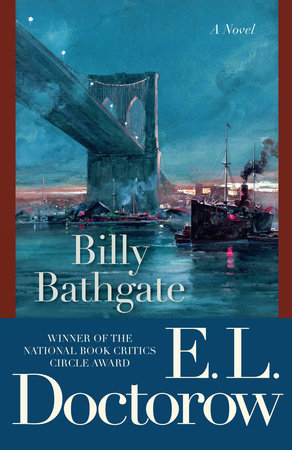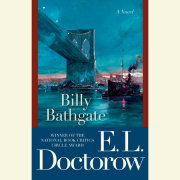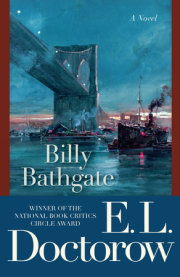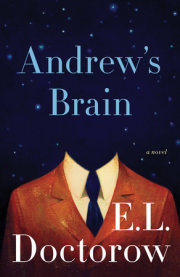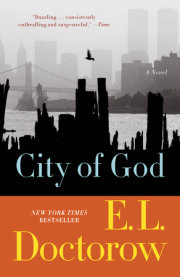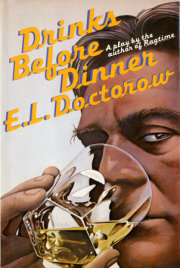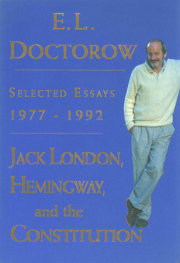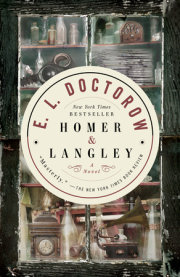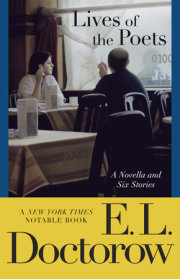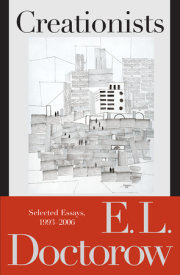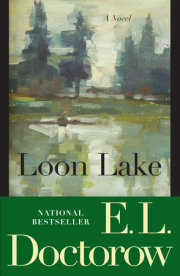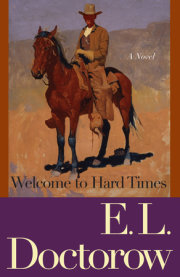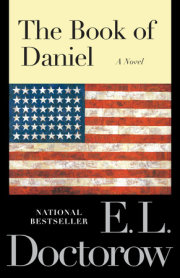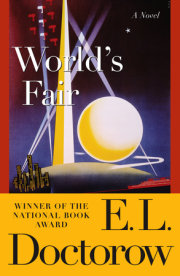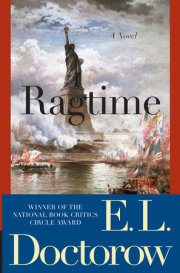ONEHe had to have planned it because when we drove onto the dock the boat was there and the engine was running and you could see the water churning up phosphorescence in the river, which was the only light there was because there was no moon, nor no electric light either in the shack where the dockmaster should have been sitting, nor on the boat itself, and certainly not from the car, yet everyone knew where everything was, and when the big Packard came down the ramp Mickey the driver braked it so that the wheels hardly rattled the boards, and when he pulled up alongside the gangway the doors were already open and they hustled Bo and the girl upside before they even made a shadow in all that darkness. And there was no resistance, I saw a movement of black bulk, that was all, and all I heard was maybe the sound someone makes who is frightened and has a hand not his own over his mouth, the doors slammed and the car was humming and gone and the boat was already opening up water between itself and the slip before a thin minute had passed. Nobody said not to so I jumped aboard and stood at the rail, frightened as you might expect, but a capable boy, he had said that himself, a capable boy capable of learning, and I see now capable of adoring worshiping that rudeness of power of which he was a greater student than anybody, oh and that menace of him where it might all be over for anyone in his sight from one instant to the next, that was what it all turned on, it was why I was there, it was why I was thrilled to be judged so by him as a capable boy, the danger he was really a maniac.
Besides, I had that self-assurance of the very young, which was in this case the simple presumption I could get away when I would, anytime I wanted, I could outrun him, outrun his rage or the range of his understanding and the reach of his domain, because I could climb fences and hustle down alleys and jump fire escapes and dance along the roof parapets of all the tenements of the world if it came to that. I was capable, I knew it before he did, although he gave me more than confirmation when he said it, he made me his. But anyway I wasn’t thinking of any of this at the time, it was just something I had in me I could use if I had to, not even an idea but an instinct waiting in my brain in case I ever needed it, or else why would I have leapt lightly over the rail as the phosphorescent water widened under me, to stand and watch from the deck as the land withdrew and a wind from the black night of water blew across my eyes and the island of lights rose up before me as if it were a giant ocean liner sailing past and leaving me stranded with the big murdering gangsters of my life and times?
My instructions were simple, when I was not doing something I was specifically told to do, to pay attention, to miss nothing, and though he wouldn’t have put it in so many words, to become the person who would always be watching and always be listening no matter what state I was in, love or danger or humiliation or deathly misery—to lose nothing of any fraction of a moment even if it happened to be my last.
So I knew this had to have been planned, though smeared with his characteristic rage that made you think it was just something that he had thought of the moment before he did it as for instance the time he throttled and then for good measure stove in the skull of the fire safety inspector a moment after smiling at him in appreciation for his entrepreneurial flair. I had never seen anything like that, and I suppose there are ways more deft, but however you do it, it is a difficult thing to do: his technique was to have none, he sort of jumped forward screaming with his arms raised and brought his whole weight of assault on the poor fuck, and carried him down in a kind of smothering tackle, landing on top of him with a crash that probably broke his back, who knows? and then with his knees pinning down the outstretched arms, simply grabbing the throat and pressing the balls of his thumbs down on the windpipe, and when the tongue came out and eyes rolled up walloping the head two three times on the floor like it was a coconut he wanted to crack open.
And they were all in dinner clothes too, I had to remember that, black tie and black coat with the persian lamb collar, white silk scarf and his pearl gray homburg blocked down the center of the crown just like the president’s, in Mr. Schultz’s case. Bo’s hat and coat were still in the hatcheck in his case. There had been an anniversary dinner at the Embassy Club, five years of their association in the beer business, so it was all planned, even the menu, but the only thing was Bo had misunderstood the sentiment of the occasion and brought along his latest pretty girl, and I had felt, without even knowing what was going on when the two of them were hustled into the big Packard, that she was not part of the plan. Now she was here on the tugboat and it was entirely dark from the outside, they had curtains over the portholes and I couldn’t see what was going on but I could hear the sound of Mr. Schultz’s voice and although I couldn’t make out the words I could tell he was not happy, and I supposed they would rather not have her witness what was going to happen to a man she might possibly have come to be fond of, and then I heard or felt the sounds of steps on a steel ladder, and I turned my back to the cabin and leaned over the railing just in time to see a lighted pucker of green angry water and then a curtain must have been drawn across a porthole because the water disappeared. A few moments later I heard one returning set of footsteps.
Under these circumstances I could not hold to the conviction that I had done the smart thing by coming aboard without his telling me to. I lived, as we all did, by his moods, I was forever trying to think of ways to elicit the good ones, the impulse to placate was something he brought out in people, and when I was engaged in doing something at his instruction I pressed hard to do my urgent best while at the same time preparing in my mind the things I would say in my defense in any unforeseen event of his displeasure. Not that I believed there was an appeals process. So I rode as a secret rider there at the cold railing through several minutes of my irresolution, and the strings of lights on the bridges behind me made me sentimental for my past. But by then we were coming downriver into the heavier swells of the open water, and the boat began to pitch and roll and I found I had to widen my stance to keep my balance. The wind was picking up too, and spray was flying up from the prow and wetting my face, I was holding the rail and pressing my back against the side of the cabin and beginning to feel the light head that comes with the realization that water is a beast of another planet, and with each passing moment it was drawing in my imagination a portrait of its mysterious powerful and endlessly vast animacy right there under the boat I was riding, and all the other boats of the world as well, which if they lashed themselves together wouldn’t cover an inch of its undulant and heaving hide.
So I went in, opening the door a crack and slipping through shoulder first, on the theory that if I was going to die I had rather die indoors.
Copyright © 2010 by E. L. Doctorow. All rights reserved. No part of this excerpt may be reproduced or reprinted without permission in writing from the publisher.

